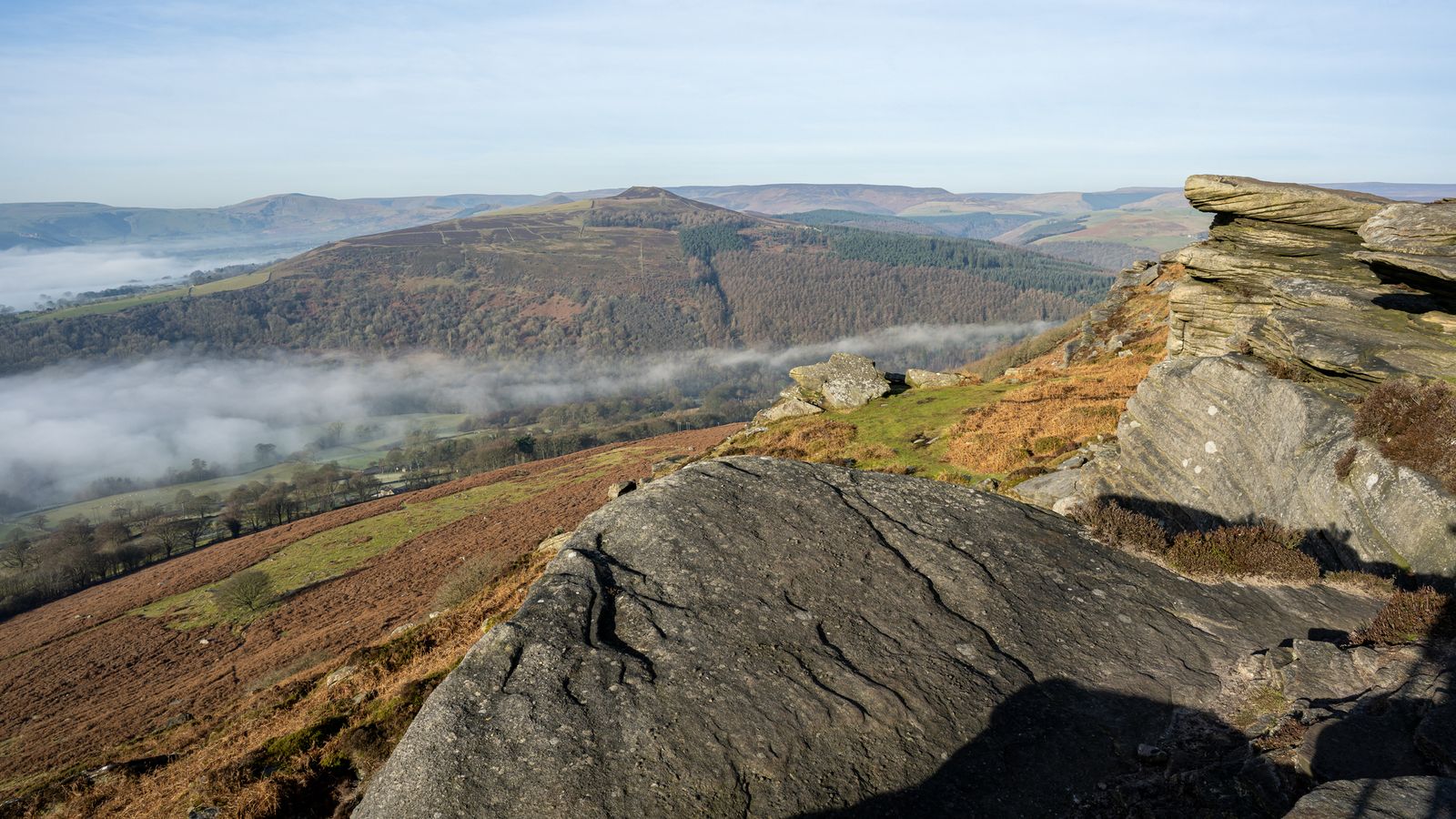The UK has provisionally recorded its warmest ever January temperature, as parts of Scotland reach 19.6C.
The temperature was recorded at Kinlochewe village, making it a new winter record for Scotland, according to the Met Office.
Meteorologist Becky Mitchell told Sky News southern winds have dragged milder air from Africa across the UK, which have triggered higher-than-normal temperatures.
The winds are also bringing a Saharan dust cloud to parts of the country, which may result in red dust settling on streets and cars over the next 24 hours.
Part of the reason for the spike is what’s called the foehn effect, which is the movement of air from the wet and cold side of a mountain to warmer and drier conditions on the other side.
When a distant wind hits mountainous parts of the country, the air can sometimes be pushed up to the top – with the air losing its moisture and becoming drier as it rises.
By the time it comes down on the other side of the hill, the relatively dry air warms as it descends.
Monkey on the loose after escaping Highlands zoo
UK COVID-19 Inquiry: Humza Yousaf admits ‘winging it’ as Scotland’s health secretary during pandemic
UK COVID-19 Inquiry: Humza Yousaf branded Scottish Police Federation a ‘disgrace’ during pandemic
The phenomenon is most common in mountainous regions, such as the Scottish Highlands.
This can create a contrast in conditions in Scotland, as the west could experience wet weather, while the lower-lying east enjoys warmth and sunshine.
The foehn effect can also be dangerous in snowy peaks, with an increased risk of avalanches in some regions.
In January 1972, a foehn event caused the temperature in Montana, in the US, to rise from -48C to 9C – an increase of 57 degrees.






















